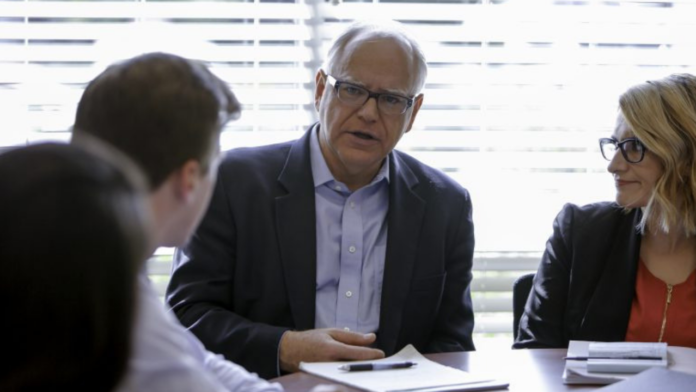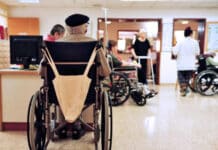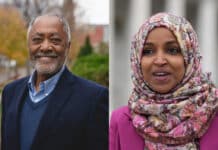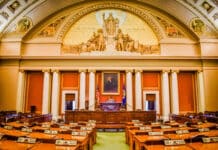Governor-elect Tim Walz says Minnesotans should “absolutely” expect gas tax increase in his upcoming budget proposal.
Walz and Lt. Gov.-elect Peggy Flanagan made their first appearance at their transition office at the state Capitol Thursday morning. During the visit, Walz was asked about his plans to push for a gas tax increase, something he said Minnesotans can expect to see in next year’s budget.
“You can’t just say you’re not going to do anything in terms of revenue or budgets and you’re going to magically get roads, bridges and transit. So yes, you can expect to see that,” Walz said.
Walz avoided specifying how much he will seek to increase the per-gallon tax.
Walz made a gas tax hike a key element of his campaign. On his campaign website, the first bullet point in his transportation plan is to increase the gas tax to “secure a stable funding source for transit and transportation.” Walz has said this plan will resonate with voters, saying Minnesotans are “willing to pay” more in taxes.
“In Minnesota, taxpayers are willing to pay if they believe their money is being spent wisely and its being fair,” Walz said during the first TPT “Almanac” debate.
While Walz claimed Minnesotans are okay with higher taxes, polling from the election cycle showed Minnesotans do not want to pay more at the pump. In a KSTP/SurveyUSA poll from September, 52 percent of those surveyed objected to a gas tax increase.
After polling showed a gap between Walz’s proposals and where Minnesotans stand, Walz briefly attempted to soften his stance on the issue. During a debate hosted by TwinWest Chamber of Commerce, Walz said he would like to “have a conversation” about the issue, adding that he would “take a look at them and see.”
While Walz will find less resistance to a gas tax hike in the Minnesota House now that the Democrats hold the majority, he will likely run into greater resistance in the Minnesota Senate. As the Pioneer Press reported, Senate Majority Leader Paul Gazelka (R-Nisswa) believes there will be room to work with Walz on certain issues, but the gas tax is not one of them.
“If you look at the last two years, we had massive increases in spending towards roads and bridges. We can do that without a gas tax,” Gazelka said. “When people say they want a gas tax [increase], I think what they’re really saying is ‘We want roads and bridges funded,’ so I think we’re all committed to that.”

















